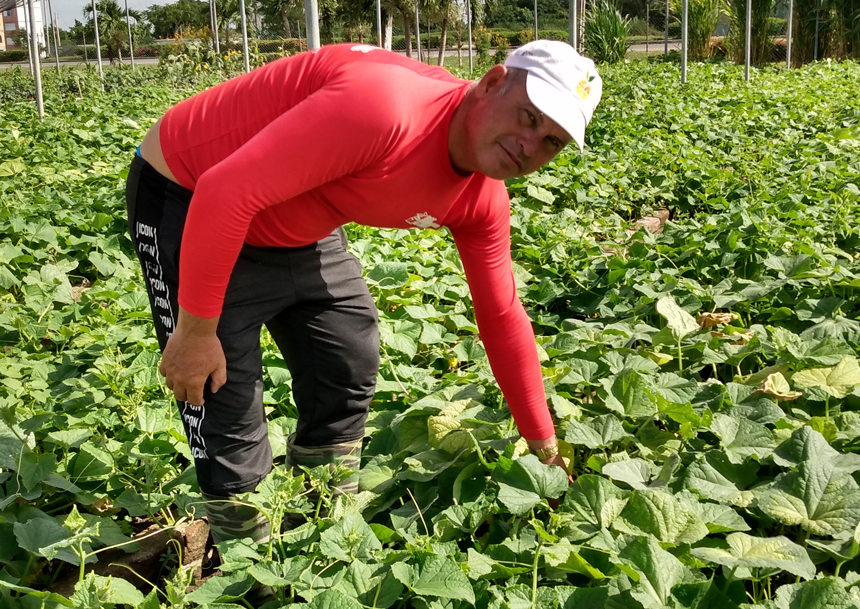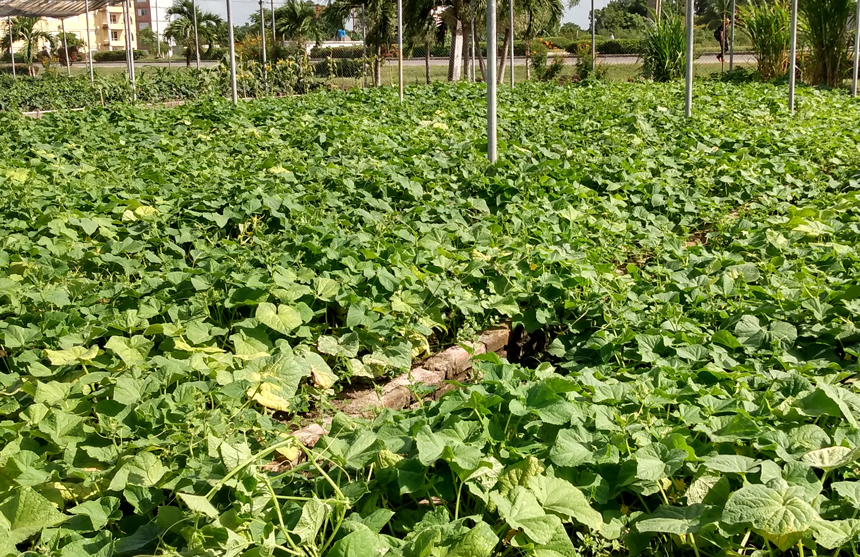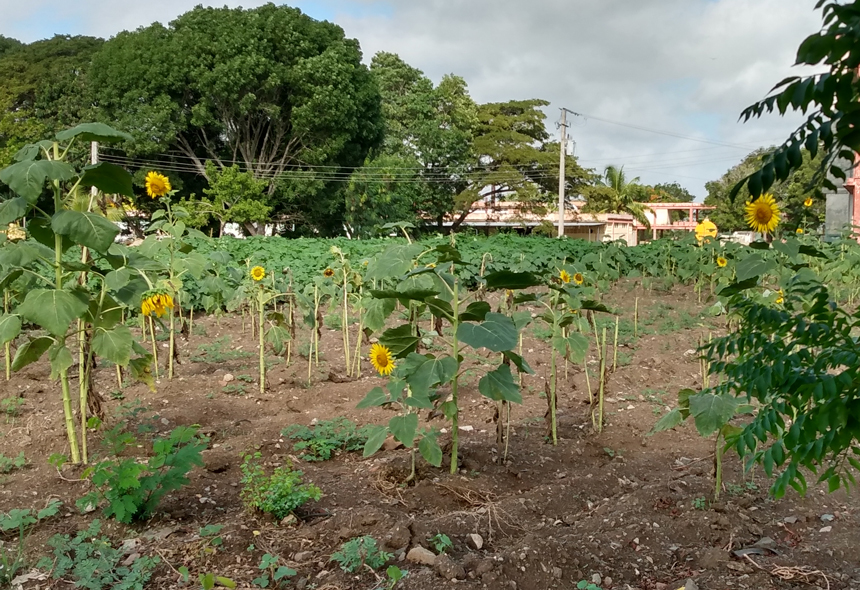
Whoever walks along Estudiantes Avenue in Las Tunas City notices the change. Right between the University of Las Tunas and the University of Medical Sciences, the weeds and empty flowerbeds have turned into green fields.
Las Tunas, Cuba.- Since the end of May, the farmer Yosvanys Fernández Rodríguez, known among his friends as Guajiro, has been renting El Perejil organoponic farm and without wasting a minute he got down to work because: "I am a fast mover so that everything goes to the people and to make the prices affordable."
He now grows okra, cabbage, chives, cucumber, lettuce, salad beans and sunflower. He may soon move into other crops as his goal is to increase production, but many obstacles stand in his way.

"At first they gave it to me as a work collective. But I wanted it in usufruct to get better results and to be able to develop myself in various activities that I considered that I could make more progress being the owner. Fortunately, I have achieved this little by little."
"I still have a long way to go, but I'm putting my heart into it because farming is very difficult. I have 1.5 hectares and I am applying for other lands, adjacent to this, to raise small livestock and semi-rustic ducks and chickens."
"My wife, my father, and some workers who came with temporary contracts work with me and some of them decided to stay. Some for the salary and others for the attention they are given or because they are getting to love this little piece of land and the work we are building on it."

The limited availability of water is one of the main difficulties for this farmer. To have it, he deepens his wells and this will be a relief because he has irrigation systems. However, the goal is to build a small reservoir from which water can be pumped.
"If I had water I could do more things. I want to dedicate a piece of it to planting the necessary medicinal plants and increasing small livestock breeding. I made a contract with the school to take care of an area full of marabou. I have already cleared it and I have 60 sheep breeders there."
"Here the soils are bad and without fertilizers, nutrients, or pesticides, we have to apply lifelong farming practices. My family is from the countryside and I come from there. I know the land and I take care of it like the apple of my eye, as the guajiros do."
"I set ecological traps for harmful insects and I'm always going around. That's what the crops need, a look at dawn and another at dusk. If you're not there at those times, you can't see the pests and the changes in the plants."
A few days ago, this producer marketed a considerable amount of mutton at low prices to several families in vulnerable situations, and he is organizing to repeat this experience with different items because he appreciates serving others.
"That's what I carry in my heart because I feel the pain of others. That is why I will donate whenever I can. For me, it is a source of pride and a very big commitment, which I will fulfill. The same goes for the promise I made to transform this space and put it to use for food production."





